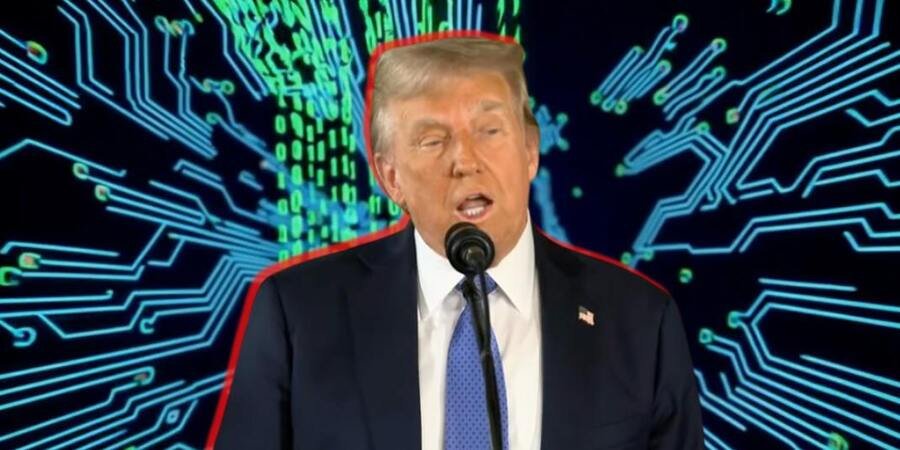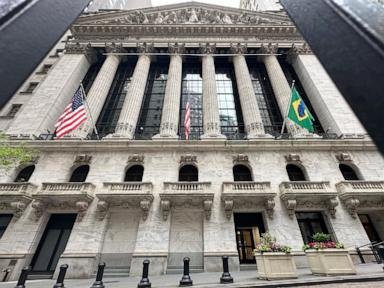As The United States winds down from four years of horrific mismanagment as the fingers of the incompetent Biden administration, few disorders stand as glaringly pressing as The United States’s cyber vulnerabilities. For President Trump, who is returning to the Oval Place of job amid a torrent of pressing world concerns, cybersecurity represents a battlefield that calls for no longer finest rhetoric but valorous, decisive action.
It is miles a battlefield plagued with the potholes of bureaucratic inertia, technological crawl, and maybe most alarmingly, a skill shortage that threatens to poke away the U.S. woefully unprepared for the cyber onslaughts forward.
Microsoft, the Silicon Valley titan that holds the reins of limitless federal contracts, has emerged as an surprising cheerleader for stronger cybersecurity efforts from the Trump administration. Brad Smith, Microsoft’s president, has issued pressing calls for the U.S. executive to take a more difficult stance on cyberattacks emanating from Russia, China, and Iran. Nonetheless, earlier than we speed to imprint Microsoft as the paladin of cybersecurity, let us no longer omit the tech giant’s patchy song file.
Despite pocketing hundreds of hundreds and hundreds of taxpayer dollars to bolster U.S. cyber defenses, Microsoft has been implicated in hundreds of breaches, many of them alarmingly excessive-profile. Critics might perhaps well also relate here’s reminiscent of hiring a security guard who leaves the vault door ajar after which ability installing more locks. But, Microsoft’s calls will no longer be without merit; the company has a degree when urging the administration to sort out relate-subsidized Developed Persistent Threat (APT) teams with elevated urgency.
Talking of APTs, the risk posed by relate-subsidized hacking collectives is as pervasive because it is subtle. International locations enjoy Russia, China, Iran, and North Korea fill turned cyber struggle into a lucrative nationwide sport. China’s Gelsemium team, to illustrate, has been linked to a depraved Linux backdoor known as WolfsBane, a malware succesful of infiltrating serious methods with stealthy precision. In the period in-between, Russia’s Comfortable Have faith and Esteem Have faith teams proceed to purpose Western governments, non-public enterprises, and election methods with brazen impunity.
Iran’s oil-prosperous regime funds APT teams enjoy APT33, known for its attacks on energy and infrastructure, while North Korea’s Lazarus Community uses ransomware to extort hundreds and hundreds to fund its rogue missile program. These teams feature enjoy shadow armies, wielding instruments that can perhaps cripple economies and compromise nationwide security.
Previous APTs, the broader cyber risk panorama reads enjoy a dystopian script. Ransomware continues to evolve, with malicious actors more and more concentrated on hospitals, colleges, and municipalities. The times of “uncomplicated” files encryption are gone; currently’s ransomware on the whole entails double extortion tactics, threatening to leak amassed files unless a hefty ransom is paid.
Malware loaders enjoy BabbleLoader add yet any other layer of complexity, functioning as the Swiss Military knife of cybercrime. These loaders distribute Trojans and spyware and spy ware with alarming efficiency, opening the gates for broader, more devastating attacks.
And let us no longer omit the unlit waters of cryptocurrency-related schemes. President Trump has confirmed a clear fondness for digital currencies, but the blockchain progress has change into a breeding ground for Bitcoin phishing scams and unlawful exercise. Bitcoin ransom calls for, fallacious Preliminary Coin Choices (ICOs), and crypto-mining malware are factual among the plagues haunting this digital frontier.
As if this litany of threats weren’t enough, The United States faces a glaring shortage of expert cybersecurity personnel. Most current estimates imply that the U.S. is rapid by hundreds and hundreds of certified cyber consultants, a gap that is as demoralizing because it is unhealthy. With out the human capital to protect our digital borders, the whole policy changes and technological advancements on this planet might perhaps well also very properly be rendered moot.
Compounding the chance is the looming live of improve for Windows 10 in the upcoming 365 days. This transition might perhaps well also result in a wave of Blue Cowl of Death errors during hundreds and hundreds of devices, growing a fertile looking out out ground for cybercriminals.
A patchwork of outdated-well-liked methods, unwell-ready for the next wave of attacks, might perhaps well also lead to catastrophic failures in serious infrastructure, from energy grids to financial networks.
However while the enlighten might perhaps well also seem bleak, hope is no longer misplaced. The Trump administration has an opportunity—even perhaps an duty—to spearhead a cybersecurity renaissance.
Key reforms are wished at businesses enjoy the Cybersecurity and Infrastructure Security Agency (CISA) and the Nationwide Security Agency (NSA), the put streamlined processes and better inter-agency collaboration might perhaps well also abet counteract the bureaucratic purple tape that on the whole stifles progress.
Investments in public-non-public partnerships will also be serious. Despite its flaws, Microsoft’s advocacy highlights the significance of leveraging experience from the non-public sector.
The administration must abet more collaboration between tech giants and executive bodies, guaranteeing that cybersecurity innovation keeps tempo with emerging threats.
Moreover, addressing the skill gap would require a protracted-term approach. This means investing in training and practising packages to domesticate the next generation of cybersecurity consultants. Scholarships, apprenticeships, and hasty-tracked certifications might perhaps well also abet bridge the abilities deficit and make stronger The United States’s digital team.
Optimistic, the challenges forward are daunting. The enviornment cyber risk panorama is more unhealthy than ever, especially as the unregulated AI world continues to grow and The United States’s digital defenses live riddled with vulnerabilities. However the fight is diagram from over.
With valorous management, strategic funding, and a willingness to embrace both innovation and accountability, the Trump administration has an opportunity to no longer finest improve American cybersecurity but location a world abnormal for resilience.
The struggle for digital dominance might perhaps well also no longer be obtained overnight. It might perhaps perhaps require grit, resolution, and a clear vision for the long poke. However in the spirit of optimism, let us dare to take into consideration that The United States can rise to the occasion. In spite of every little thing, it’s no longer the size of the breach that defines us, but the strength of our response.
Julio Rivera is a industry and political strategist, cybersecurity researcher, founding father of ItFunk.Org, and a political commentator and columnist. His writing, which is targeted on cybersecurity and politics, is frequently printed by many of a truly powerful news organizations on this planet.





